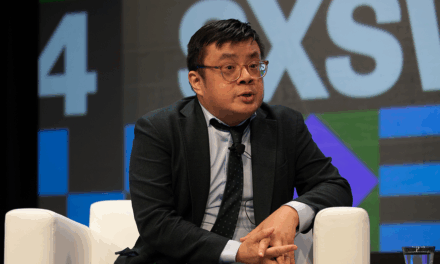In a significant development following a recent lawsuit, Colorado state officials have declared they will not enforce certain gender identity regulations against a Christian children’s camp. This decision comes amidst rising concerns among faith-based organizations about their rights in light of evolving state policies regarding gender identity and other related issues.
The camp at the center of this legal dispute, known for its commitment to fostering religious values and teachings, had raised alarms about the state’s regulations aimed at promoting inclusivity and anti-discrimination. The lawsuit highlighted the tension between the state’s intent to uphold civil rights and the camp’s desire to adhere to its religious convictions.
The conflict began when the Christian camp found itself facing the possibility of compliance with new state laws that could require it to accommodate children based on their self-identified gender rather than their biological sex. The camp argued that such regulations would infringe upon its religious beliefs and the established principles that guide its operations.
Colorado’s Division of Youth Services had indicated that it would need to implement guidelines to align with the state’s gender identity protections. These protections were established to safeguard the rights of transgender and non-binary individuals, particularly in settings such as educational institutions and care facilities. However, the camp contended that these regulations would force it to violate its religious doctrine.
Reacting to the camp’s concerns and the ensuing lawsuit, Colorado’s Attorney General announced a decision to suspend the enforcement of these gender identity rules specifically for the Christian camp, emphasizing the need to balance religious freedoms with civil rights. This decision is expected to grant the camp a reprieve, enabling it to operate according to its spiritual beliefs without the fear of legal repercussions.
The lawsuit, filed in a Denver federal court, argued that the enforcement of the gender identity regulations would effectively compel the camp to alter its practices and beliefs concerning gender, in opposition to its core mission. This situation is part of a broader national discussion regarding the rights of religious organizations in light of state anti-discrimination laws aimed at protecting LGBTQ+ individuals.
Many advocates for LGBTQ+ rights have voiced concerns over the implications of such exemptions, warning that allowing camps and other institutions to deny services based on gender identity could contribute to systemic discrimination. Supporters of the camp, however, argue that the preservation of religious freedoms is crucial and that the state should respect the beliefs of faith-based organizations.
This legal confrontation reflects a growing trend across the United States, where numerous states are grappling with how to balance the rights of religious entities with the protections afforded to LGBTQ+ individuals. In many cases, the outcomes of such disputes are being closely watched as they may set substantial precedents impacting future cases.
While Colorado’s decision may provide temporary relief for the Christian camp, it also raises questions about potential future legal challenges. Any amendments or reinstatements of the gender identity regulations could provoke further litigation, and the camp’s leadership is keenly aware that this is an ongoing battle. The camp has expressed gratitude for the state’s current stance but remains vigilant in preparing for potential changes that could reintroduce the issues at hand.
Moreover, the dialogue surrounding this issue has highlighted a divide not only in legal interpretations but also in societal attitudes towards gender identity and religious freedom. Many families, both within and outside the camp’s community, have been forced to reckon with the implications of these laws. The camp’s supporters have emphasized that adhering to traditional beliefs does not equate to harboring animosity against those who identify differently but rather stems from an unwavering commitment to their faith.
In these discussions, the narrative often shifts to focus on the broader implications for communities across Colorado and beyond. The camp stated that it aims to provide an encouraging environment for children to connect with their faith without the complexities introduced by external regulations. This pledge to children underscores the camp’s belief that maintaining a clear, values-based approach is paramount to its mission.
As states like Colorado continue to navigate the intersection of religious freedoms and civil rights, the ramifications of these legal decisions will likely shape the operational landscape for many faith-based organizations throughout the nation. Discussions are ongoing, and many stakeholders remain optimistic that compromise can be reached, fostering an atmosphere where both religious liberties and individual rights are respected.
The camp, now relieved from immediate legislative pressures, plans to continue its programming, allowing children to experience its activities and teachings without the encumbrances of mandatory policy adjustments. It is eager to focus on its core mission of spiritual guidance and community building, and leaders hope this will reaffirm their commitment to nurturing faith in young hearts.
This situation exemplifies a broader societal tension that transcends mere legal matters, urging communities to engage in conversations about inclusivity, respect, and coexistence. Observers note that while the court decisions may provide temporary solutions, the underlying issues of identity, belief, and acceptance remain a challenge for society as a whole.
In a rapidly changing cultural landscape, organizations and individuals on both sides of the debate will need to continue advocating for understanding and compromise. The way forward may not be simple, but the goal of fostering a society that respects diversity in belief and identity is one that resonates deeply as discussions continue.
































